Paris climate deal: Why is business angry at US withdrawal?
- Published
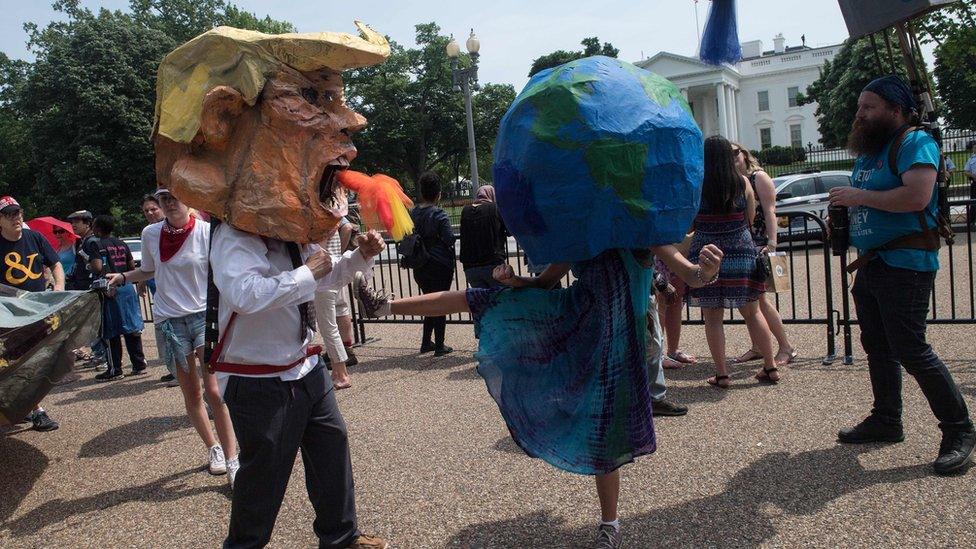
Donald Trump has pulled the US out of the 2015 Paris climate agreement.
Spoiler alert, the coal industry is pretty happy. But apart from that, there has been almost universal criticism from big business.
Tesla chief executive Elon Musk and Walt Disney boss Robert Iger have quit their advisory positions in the White House as a result.
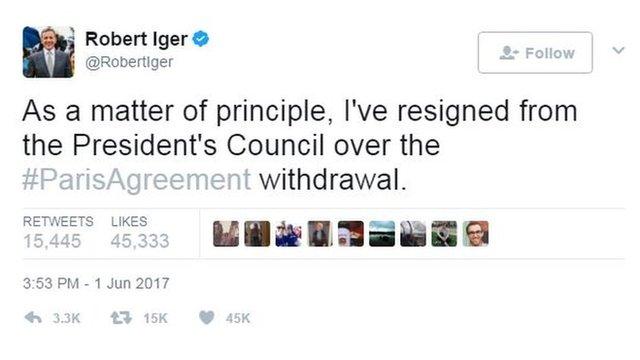
And chief executives have been queuing up - or at least tweeting - to share their views too.
Facebook's Mark Zuckerberg said the withdrawal was "bad for the environment, bad for the economy, and it puts our children's future at risk", while fellow dotcom billionaire Jack Dorsey, the co-founder of Twitter, called it "an incredibly short-sighted move backwards".
Goldman Sachs boss Lloyd Blankfein used his first ever tweet to condemn the move.
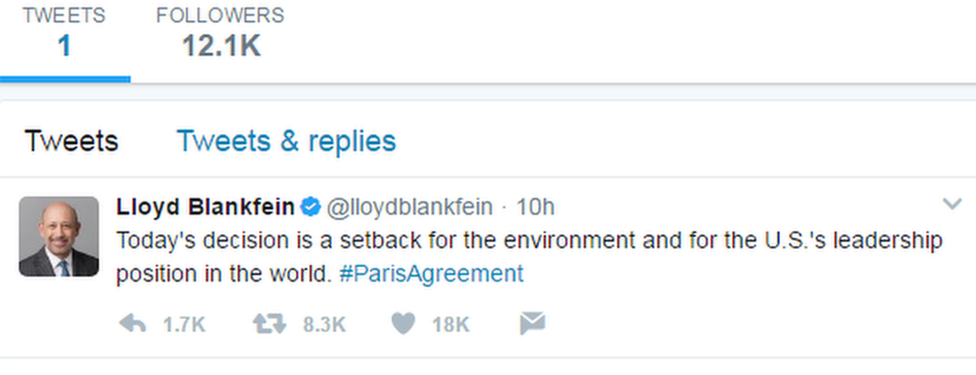
So, given President Trump's argument that the decision is good for the US economy, why is business - in the US and beyond - so opposed?
Here are a few reasons:
1) The change has already happened
Long before the Paris deal was signed, many of the world's biggest companies were addressing their impact on the environment and their role in tackling climate change.
And in the hours after the announcement, major firms were quick to emphasise that whatever the US's official position on the Paris deal, their own environmental focus would remain.
Facebook's Mr Zuckerberg said it would continue with plans to power every new data centre it builds through 100% renewable energy, while Amazon insisted it remained "committed to putting our scale and inventive culture to work in ways that are good for the environment".
Meanwhile Google's chief executive Sundar Pichai said he was "disappointed" and that his firm would "keep working hard for a cleaner, more prosperous future for all".
Even energy firms, whose businesses have depended heavily on oil and fossil fuels, have long been looking to the future, pouring hundreds of billions of dollars into researching and developing more sustainable, clean sources of energy.
US giants ExxonMobil and Chevron had urged President Trump to stay in the Paris deal. And a tweet from Anglo-Dutch giant Shell said: "Our support for the #ParisAgreement is well known. We will continue to do our part providing more & cleaner energy."
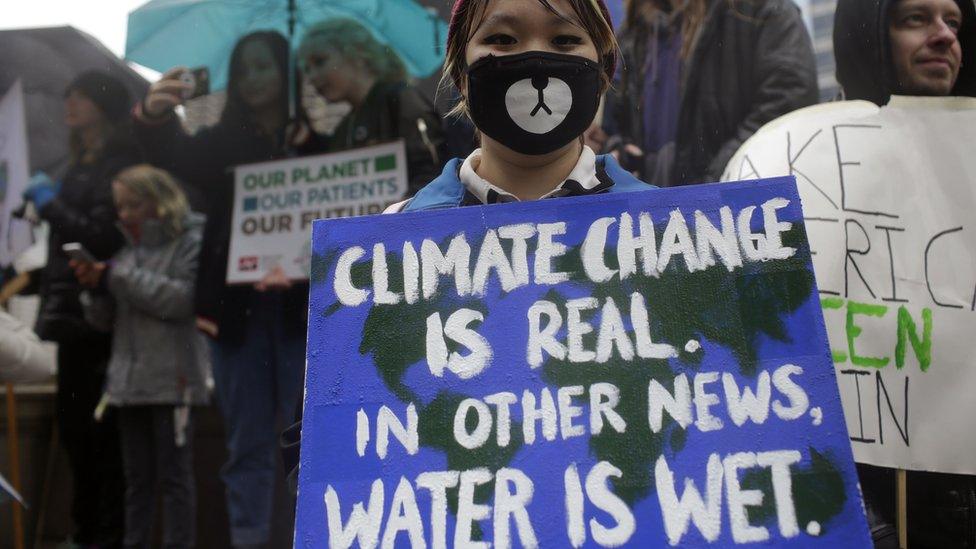
2) The numbers add up
Business decisions for the most part come down to dollars and cents, costs and benefits. And while fossil fuels such as oil, gas and coal have traditionally been the cheapest form of energy, the cost of harnessing renewable energy sources such as solar, hydro and wind has dropped dramatically over the last decade.
Granted, they often still receive large government subsidies. But some research shows, external it can be cheaper than grid electricity and it can even generate savings - so businesses find it increasingly appealing.
Walmart, for example, claims it saves $1bn a year by getting a quarter of its power from renewable sources.
Former US President Barack Obama summed up this idea in a response to Mr Trump's move, saying: "Simply put, the private sector already chose a low-carbon future.
"For the nations that committed themselves to that future, the Paris Agreement opened the floodgates for businesses, scientists, and engineers to unleash high-tech, low-carbon investment and innovation on an unprecedented scale.
"The nations that remain in the Paris Agreement will be the nations that reap the benefits in jobs and industries created."
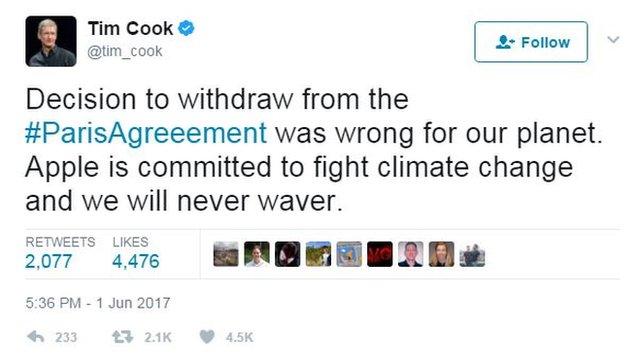
3) Climate change risk
Putting aside the financial impact, several business leaders denounced the pull-out of the Paris deal as irresponsible.
President Trump's decision was "wrong for our planet" according to Apple chief executive Tim Cook.
Climate change, or global warming, refers to the damaging effect on the atmosphere of gases, or emissions, released from industry and agriculture.
Whether you're a tree-hugger, a climate change sceptic or somewhere in between, there is hard and soft data to underscore the financial toll environmental change takes on business and society.
That's why companies like Kellogg and General Mills, which depend on the weather to grow grains to make cereals for example, are looking for ways to protect their supply chain.
And they're also mindful that their new and future customers are the millennial generation, which will make up half of the global workforce by 2020. The younger demographic is far more passionate and vocal about social and environmental issues, particularly on social media.

What was agreed in Paris?
The Paris accord is meant to limit the global rise in temperature attributed to emissions. This requires signatories to:
Keep global temperatures "well below" the level of 2 degrees C (3.6 degrees F) above pre-industrial times and "endeavour to limit" them even more, to 1.5C
Limit the amount of greenhouse gases emitted by human activity to the same levels that trees, soil and oceans can absorb naturally, beginning at some point between 2050 and 2100
Review each country's contribution to cutting emissions every five years so they scale up to the challenge
Enable rich countries to help poorer nations by providing "climate finance" to adapt to climate change and switch to renewable energy

4) It damages global reputations
The Paris deal for the first time united most of the world in a single agreement on climate change.
It was signed by 195 countries out of 197 (with only Syria and Nicaragua abstaining) and came into force last November.
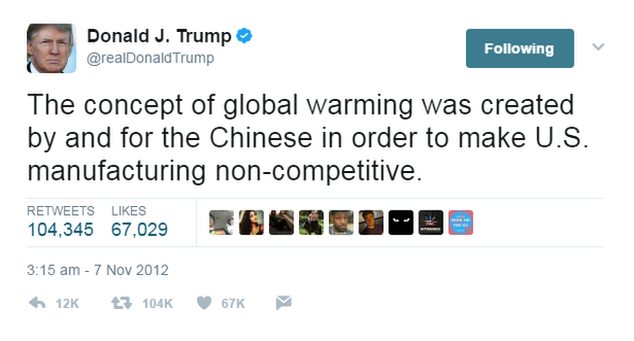
Almost 150 of those countries have ratified the accord - including the US which is the world's second-largest carbon emitter behind China.
So the US backing out now makes the deal far less effective.
Goldman Sachs chief executive Lloyd Blankfein has described the step as a "setback", not just for the environment but for "the US's leadership position in the world".
- Published1 June 2017
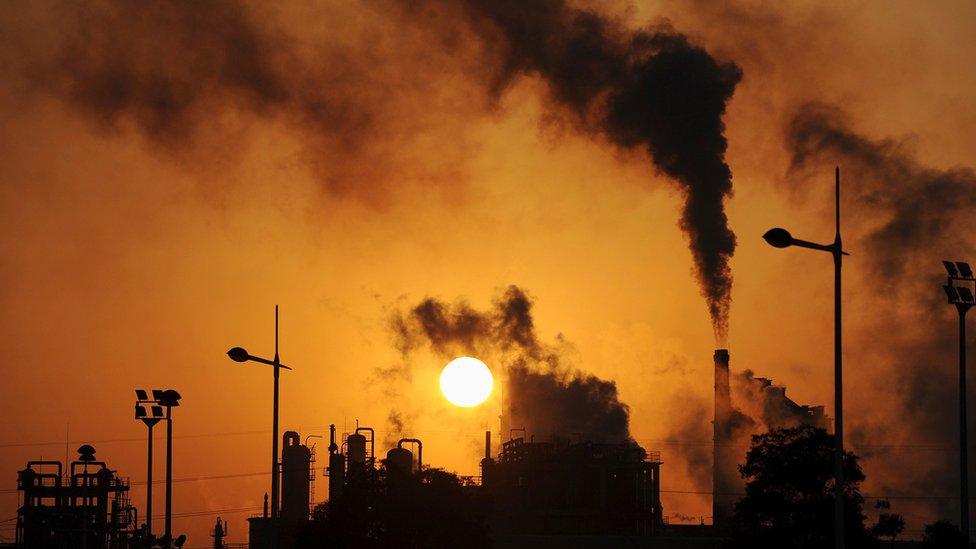
- Published31 May 2017